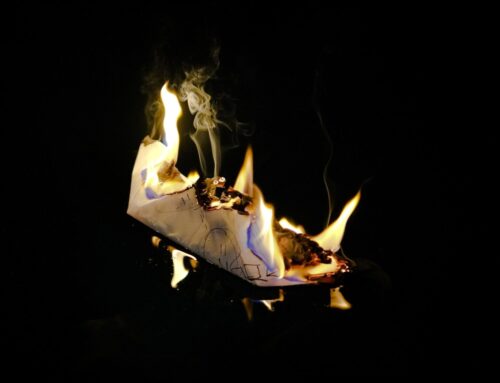The other day I was cleaning up after a dog and it occurred to me that this disgusting, foul smelling sh!t is a brilliant analogy for life.
In life, we produce our own non-organic sh!t and we either develop practices to clean it up or it stays around and produces it’s non-organic equivalent of foul smell, and disease that affects, relationships, businesses and careers.
… there is no escaping it: sh!t happens
As the saying goes “shit happens” and it really does. There’s nothing inherently right or wrong with it, or good or bad about it.
It’s just a fact of life; like when rain falls, things get wet. Living things excrete, and then seek to get the hell away from it.
The act of living produces sh*t
Consider the following:
- the clean up after the party
- the loans to pay for the house or education
- the pollutants from factories
- the packaging from the products you buy
- the impact of making choices on those who don’t benefit
- non-ethical or immoral behavior
- broken commitments
- the failure to do your duty or honor obligations
- making expedient or convenient choices that do not consider others or the future.
In biology we learn that it is a characteristic of living organisms to excrete. In our normal everyday conversations we speak of relationships and businesses as if they were living organisms. Just carry that analogy a bit further to include the production of sh!t.
Sh&t smells bad
There’s a good reason why when something bad, unexpected or unpleasant happens almost all cultures say the same thing in their language. “Sh*t”
Because of the universal experience with the organic original, the word immediately and powerfully captures what we don’t want to have in our experience. The stuff stinks and we don’t want to handle it.
But it can’t be avoided.
So we must develop effective practices to deal with the sh*t that we and others produce in our lives.
Shit defined
Sh*t is the unpleasant and toxic by-product of existence itself; this includes any unpleasant by-product of otherwise pleasant or worthwhile activities.
The organic variety you deal with everyday, but you are probably unaware of the non-organic varieties you navigate around, or contribute to every day.
Some examples of non-organic sh!t
Here are some examples of sh*t that is created or already exists in organizations, and your daily life.
- You spend hours overtime and a weekend working on a report that your boss requested, you submit it on time and she doesn’t read it until a week after the deadline she imposed.
- You announce a new initiative or policy to your organization and both it, and you are greeted by icy silence.
- You are passed over to lead a project that was your idea and that you feel more capable of executing than anyone else.
- Your boss rebukes a colleague in front of everyone.
- Despite repeated requests and warnings your staff continues to dress inappropriately and come late.
- A boss hires a beautiful woman with no apparent credentials for the job. She is also rumored to be having an affair with him.
- You miss your 8 year old’s performance in a school play. She reminded you every day for the last week and you promised each time you would be there.
- In a moment of anger you said something unkind to someone you care about.
Each of these examples produces the equivalent of sh*t that pollutes an environment, damages relationships, makes it harder to cooperate and co-ordinate action with others.
With no practice to deal with this type of sh!t, people tend to pile more on top of it to the point where it becomes ingrained in the culture and people even forget how that practice began.
The common thread with all of these examples is that when the sh!t is not dealt with, it literally stinks up the place.
Sh!t must be cleaned up
This we learn from the naturally occurring every day variety. If not cleaned up and removed, we and our environments become unhealthy, foul and repulsive.
But because we are not taught to see the non-organic varieties of sh!t (like the examples cited above) as shit, we don’t clean it up and it stays around polluting relationships and making it very difficult to get things done in teams.
What we need is to teach people about non organic sh*t.
Some more on this in part II of this article






How true! How True! Well written sh*t
[…] earlier we learn to identify and deal with the non-organic poo in our lives the better off we will be. So perhaps we should offer a course in high school […]